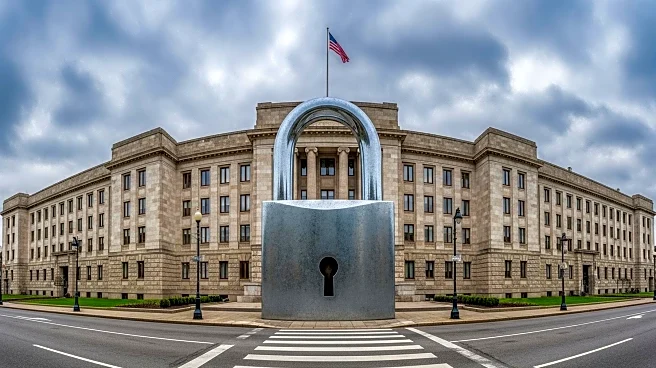What is the story about?
What's Happening?
The U.S. Senate has once again failed to pass competing funding proposals from Republicans and Democrats, prolonging the government shutdown into its second week. The GOP-led stopgap bill, which aimed to fund the government through late November, was rejected in a 54-45 vote. Similarly, a Democratic-backed funding bill failed with a 47-52 vote. The deadlock continues as both parties blame each other for the impasse, with President Trump and Republicans accusing Democrats of holding the government hostage. The ongoing shutdown affects various government operations and services, with no immediate resolution in sight.
Why It's Important?
The government shutdown has significant repercussions for federal employees, government services, and the broader U.S. economy. Prolonged shutdowns can lead to disruptions in public services, delayed paychecks for federal workers, and economic uncertainty. The political stalemate highlights deep divisions in Congress, complicating efforts to reach a bipartisan agreement. The inability to pass funding bills reflects broader challenges in U.S. governance, where partisan gridlock often hinders effective policymaking. The situation underscores the need for compromise and negotiation to prevent further economic and social impacts.
What's Next?
As the shutdown continues, pressure mounts on lawmakers to find a resolution. Both parties may face increasing public scrutiny and political consequences if the impasse persists. Potential next steps include renewed negotiations, possible concessions from either side, or alternative legislative strategies to break the deadlock. The outcome will depend on the willingness of political leaders to prioritize governance over partisan interests. The situation remains fluid, with potential developments in the coming days as stakeholders seek to mitigate the shutdown's impact.

















